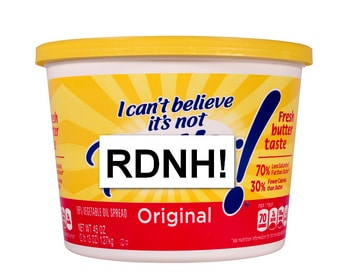There appears to have been plenty of bad faith in this dead-on-arrival UDRP.

I’ve written about UDRP panelists sometimes letting Complainants off the hook for reverse domain name hijacking if they didn’t hire a lawyer.
That’s bad, but I think this case is worse: a panelist not finding reverse domain name hijacking because the Complainant successfully proved the first element of UDRP.
The first element is that the Complainant shows that the domain is identical or confusingly similar to a mark in which it has rights. This is basically a slam dunk in all UDRP cases. Rarely does a company file a UDRP if it’s not for a domain that matches (or is very similar to) their trademark. That first element is met even in most cases of reverse domain name hijacking.
Yet, in a dispute over SellUp.com, panelist Ho Hyun Nahm said this was grounds for not finding reverse domain name hijacking:
As the Panel finds that Complainant has prevailed on the “identical/confusingly similar” prong of the Policy ¶ 4(a)(i), Complainant does not seem to have been motivated by bad faith, but rather by excessive and unjustified optimism about a case that was always dubious.
The National Arbitration Forum panelist refers to a case from 2003 in which a panel denied RDNH based on the Complainant meeting the first element. But there was more to that case. The panel in the previous case noted that “there is a real dispute between the parties.”
(As a side note, I wonder how the panelist found and referred to the 2003 case. Seems like a lot of digging?)
Compare that to the SellUp.com case. In this case, the Complainant failed to show any rights to the SellUp mark that predate the 19-year-old registration of the domain name. Second, the Complainant tried (and failed) to get a U.S. trademark for the term SellUp.com. That’s right — the Complainant filed for a trademark for a domain name it didn’t own.
Those are glaring examples of bad faith that I believe would cause most panelists to find reverse domain name hijacking.
Post link: This panelist let the Complainant off the hook for RDNH
© DomainNameWire.com 2020. This is copyrighted content. Domain Name Wire full-text RSS feeds are made available for personal use only, and may not be published on any site without permission. If you see this message on a website, contact editor (at) domainnamewire.com. Latest domain news at DNW.com: Domain Name Wire.
Related posts:
Go to Source
Author: Andrew Allemann




